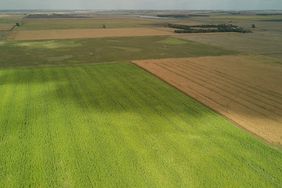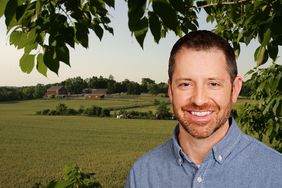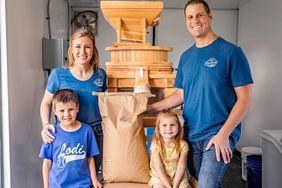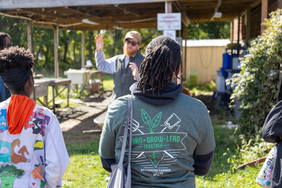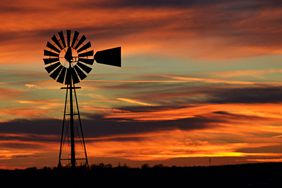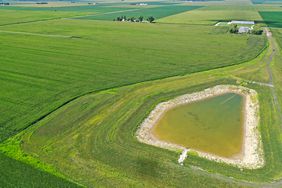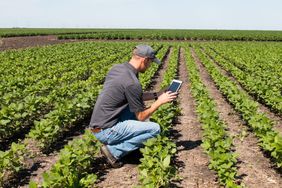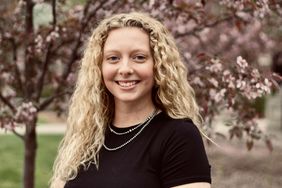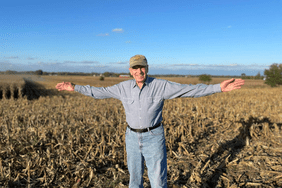:max_bytes(150000):strip_icc()/Mager-2-e84f791818764d548179fe237f24bb6f.jpg)
Stuart Mager is no stranger to agriculture. He's been passionate about farm-ing since childhood.
"I would have rather driven a tractor than go to school," he says.
Inspired by their grandfathers, Stuart and his brother, Drew, are now the fourth generation to operate the family farm near Rockville, Indiana. "Stuart and his brother were both raised on their farm," says his wife, Autumn Mager. "Both of their grandpas instilled in them the desire to farm and an appreciation for the farm."
Today, Stuart and Autumn help operate the 3,200-acre farm and custom farm an additional 1,400 acres. Motivated by his grandparents' lessons, Stuart has worked to make things better than he found it by implementing sustainability-minded management practices.
SF: What got you interested in sustainability on the farm?
SM: It's always about the next generation. This was built before us, and every generation was worried about the next. We want to do anything and everything we can for the next generation. We've been no-tilling since about 1998. We try to no-till and rotate everything that's not no-till into the no-till acres.
AM: Their interest in sustainability goes back to their grandpa teaching them to take care of the land. I don't think there was anything that necessarily kick-started that mind-set; it was just the way they were taught from the beginning.
SF: How did you get involved with Truterra?
AM: I am a crop insurance agent, and one of the local agronomists called me for help getting a customer enrolled in Truterra's carbon program. As I was talking to her, I realized it was something that we could do because my husband and his brother have this goal to eventually convert our entire farm to no-till. I started researching it and enrolled our farm in the program in 2021.
SF: What was that experience like?
AM: It was the first year Truterra had offered the carbon market. It was painful enrolling the farm. Stuart and I spent an entire weekend with his yield books from years and years ago entering information. It was not something a typical farmer could do or would want to do because it was so time-consuming and complicated. I started working with the program chair and emailing them with things they could improve. Eventually, they offered me a position on their advisory board.
SF: What do you wish more consumers knew about agriculture?
SM: I think there's this black cloud over agriculture where people believe farmers are not good stewards of the land. The complete opposite is true. Every farmer has the land in mind and works hard to make things better and be more efficient in everything he does.
AM: If you're not a farmer, you may have this stigma that farmers just work part of the year and do the same thing over and over. I wish people understood the risk farmers take every day. They have to gamble every day, and there are no days off. The risk they take is unfathomable to most people, especially to people who don't work in an industry like this.
SF: What has been your greatest achievement on the farm?
SM: My greatest accomplishment would be the same as every generation that's been here — the ability to maintain the farm and be profitable.
AM: My husband and my brother-in-law did lose their grandpa. I would say their greatest accomplishment is that they have maintained and grown and been profitable since they lost him and all of his guidance and wisdom. I feel like they can both say, "Grandpa would be proud of what we have done with this farm."
Background: Stuart and Autumn Mager grow corn, soybeans, and wheat near Rockville, Indiana. Passionate about sustainability, they have worked to convert their farm to a majority of no-till acres. "They're not making any more farmland, and we have to do what we can to protect it," Stuart says.
:max_bytes(150000):strip_icc()/headshot-bc4ff3c0c50c4e1cb8156ba02e8bf428.jpg)
